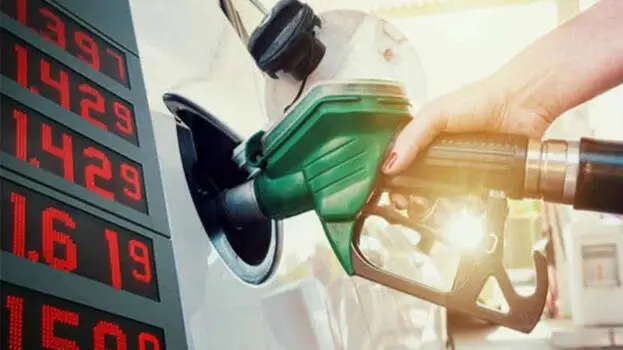Nigerians woke up on Tuesday, October 28, 2024 to another petrol price hike, the fourth within 18 months under President Bola Ahmed Tinubu’s administration with the outlets of the Nigerian National Petroleum Company Limited (NNPCL) increasing the pump price of Premium Motor Spirit (PMS) or petrol from N897 Naira to N1,025.
Before the president announced the “end to fuel subsidy” during his inauguration speech in May 2023, the NNPCL sold PMS at 198 Naira per litre. That controversial presidential announcement took the price to 540 Naira, and in July 2023, it went to N617, before climbing to 879 Naira per litre last September, and then the latest increase.
The NNPCL prices are usually the baseline. Fuel usually sells higher at private filling stations going for between N1,000 and N1,400 per litre, depending on the location in the country.
The September price rise coincided with the date that the Dangote Refinery, a $USD20-billion project set up by Africa’s richest man Aliko Dangote, rolled out PMS to save Nigeria’s blushes as a major oil producer that imports refined petroleum products and endures embarrassing shortages because its four state-run refineries are in disrepair.
- The many controversies of Minister of Power, Adelabu
- Why we want to unbundle railway sector — Transport minister
The Port Harcourt refinery which the government promised would resume production in September has not do so and instead of the anticipated relief from Dangote’s private refinery, Nigerians are experiencing inexplicable increases in fuel prices.
Due to irregular electricity supply, compounded by the frequent collapse of the National Grid, the Nigerian economy depends heavily on petroleum products, and every increase in price affects manufacturing and production by industries and medium-and small-scale businesses.
The additional costs including in transportation, are then passed on to the final consumers making the cost of living very high. This, and other tough economic policies introduced by the Tinubu’s government, including the devaluation of the Naira, have resulted in more hardship and protests against “hunger and bad governance.”
Many Nigerians bearing the brunt of hardship have discountenanced assurances by government officials that positive changes are in the horizon.
According to the Nigeria Bureau of Statistics, oil exports account for about 80% of the country’s total revenue and the greatest tragedy is that transactions in Nigeria’s oil industry remain opaque and lack transparency.
The industry is plagued by one controversy after another, including the trading of accusations of sabotage by the stakeholders even after the latest intervention by the President Tinubu, who is also minister of Petroleum.
After Dangote refinery complained about its inability to source crude locally, it was agreed that the NNPCL should sell crude to local refineries in Naira, while markers should also buy refined products in the local currency to serve the final consumers.
However, that arrangement appears not to be working going by what Aliko Dangote, President and Chairman of Dangote Industries Limited (DIL) told journalists after a stakeholders’ meeting chaired by President Tinubu in Abuja on Tuesday.
Dangote is categorical that to end fuel shortages or long queues at filling stations in Nigeria, the NNPCL and marketers should stop importation of petrol.
The billionaire reiterated that at its full capacity of 650,00 barrels per day, his refinery based in Lekki, Lagos, can meet Nigeria’s domestic consumption with a surplus for export.
There might be volatility in the world oil market, but at the rate the fuel price increase is surreptitiously introduced, Nigerians will probably brace for more surprises.
Nigeria is still producing around 1.2 million barrels of oil a day, below its 1.5 million barrels a day Organisation of Petroleum Exporting Countries (OPEC) quota, thereby losing millions in foreign currency.
Indeed, analysts see the crisis in Nigeria’s petroleum industry as man-made mismanagement, corruption and greed with successive governments and their allies cashing in on the deliberate confusion to make easy money from the cash-cow without accountability.
Paul Ejime is a Global Affairs Analyst and Consultant on Peace & Security, and Governance Communications.

 Join Daily Trust WhatsApp Community For Quick Access To News and Happenings Around You.
Join Daily Trust WhatsApp Community For Quick Access To News and Happenings Around You.


